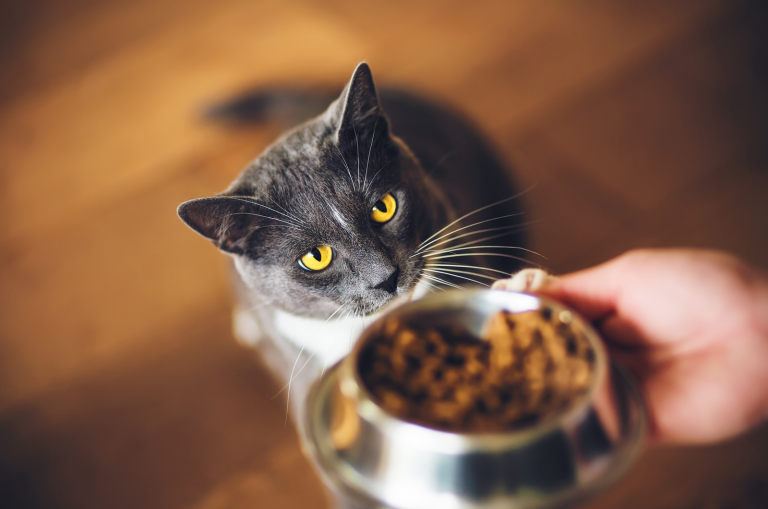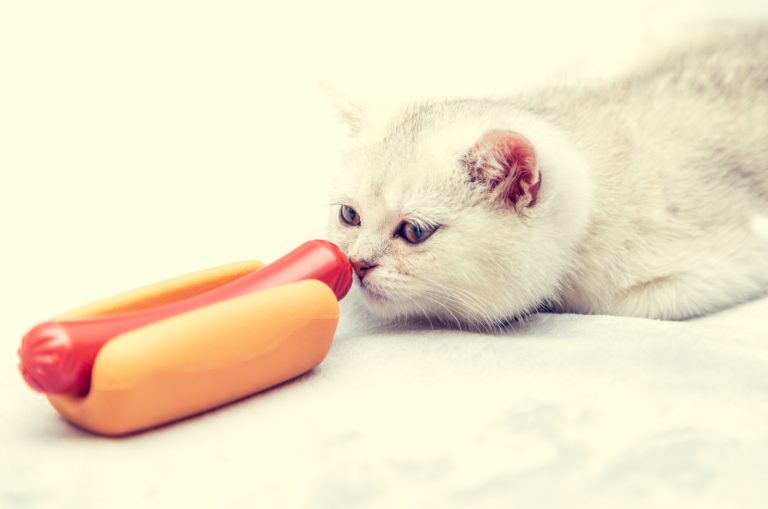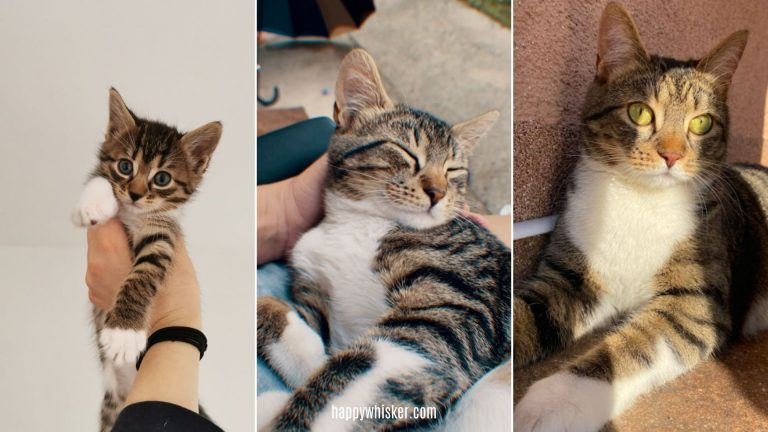Can Cats Eat Lightning Bugs (Fireflies)?
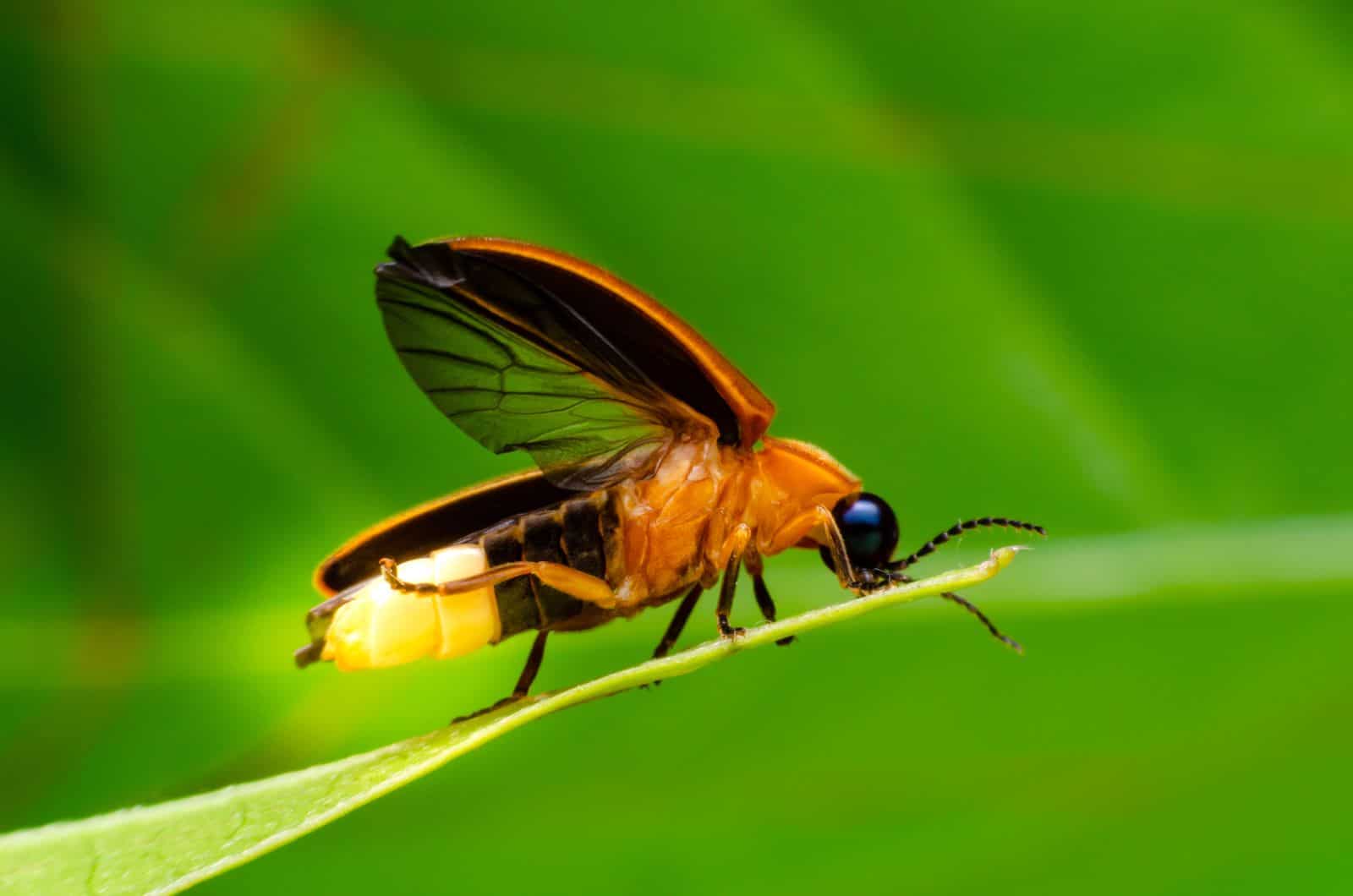
Cats are known for always being in the mood for playing around and exploring their environment. If your cat is a pro explorer, they may encounter a lighting bug in your backyard. If you know your cat is extra-curious and likes eating new things, you might be wondering Can cats eat lightning bugs?
Cats should not eat lightning bugs as they are toxic to them. Eating one firefly will not prove fatal for a cat, but some side effects may occur.
Eating lightning bugs is known to be deadly to lizards, but there aren’t a lot of cases of cats dying because of firefly ingestion (luckily). This does not mean a cat eating them is good – fireflies are definitely toxic for cats!
Continue reading to learn more about the toxicity of fireflies, if cats like eating them, and what you should do if your cat does eat them!
Can Cats Eat Lightning Bugs?
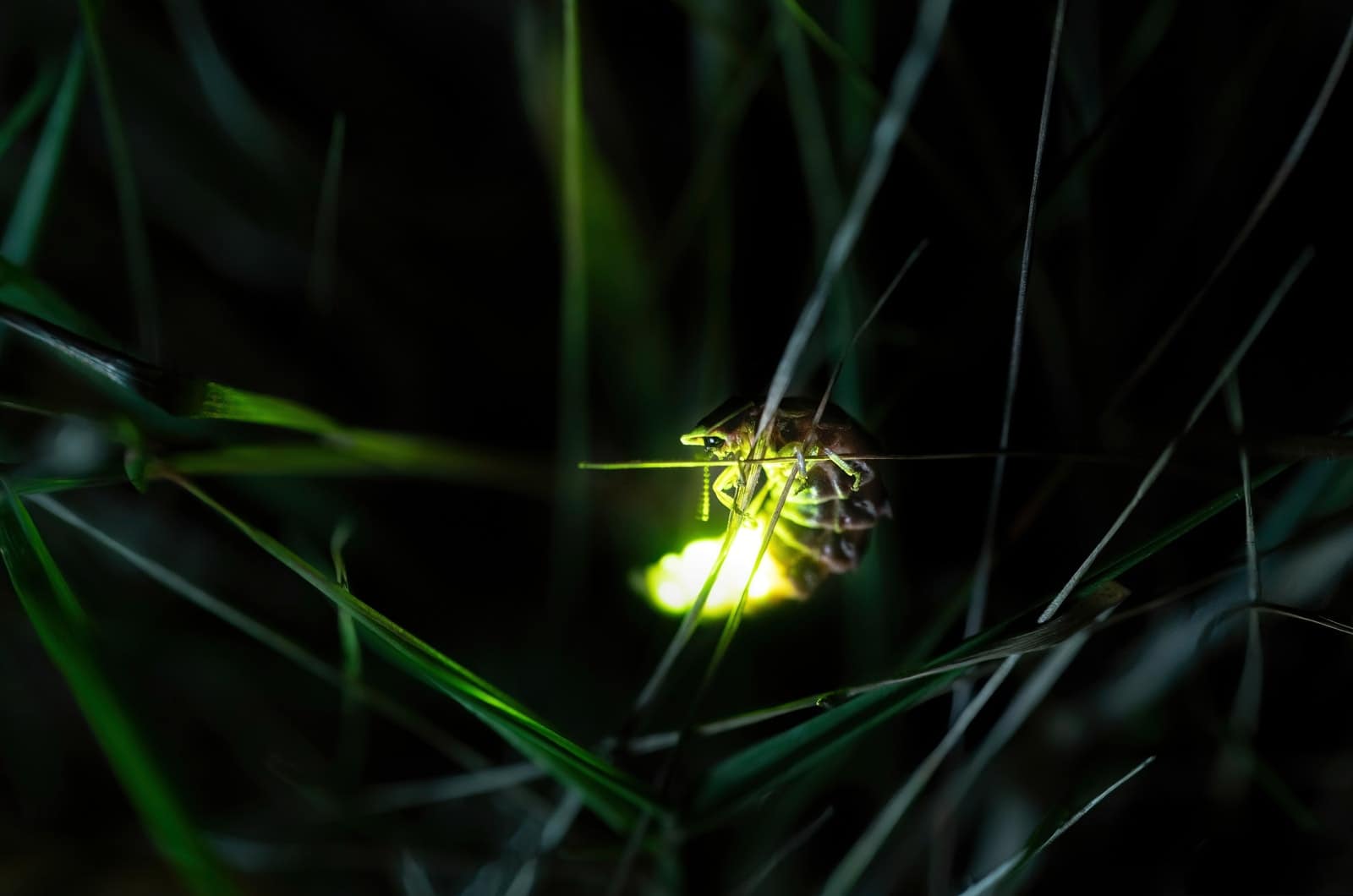
Lightning bugs are a common sight on summer evenings as they’re very recognizable with their luminescence (that famous glow!).
There are about 2000 species of fireflies and they are known to live in warm or moderately warm areas with a lot of moisture, they thrive in wet or damp areas. So if you live in Florida for example, you’re bound to have them around.
If you see them often and you know you have a curious cat, you might wonder Can cats eat fireflies?
Cats absolutely should not eat fireflies, but as we know, our little troublemakers are no strangers to eating many different things they come across randomly.
Will eating one lighting bug cause death to a pet? No, but it may cause an upset stomach, foaming at the mouth, drooling, and other unpleasant symptoms.
On the other hand, if your cat eats a few lighting bugs, that could be a more serious issue – but that is most likely never going to happen. Why? Continue reading to find out!
Are Lightning Bugs Poisonous To Cats?
Yes, lighting bugs are poisonous to cats. And yes, lighting bugs are toxic for cats.
People often use the words toxic and poisonous interchangeably. Poison is a substance harmful to an organism, while toxin is a substance produced biologically by a living organism which is harmful to another organism .
As I’ve already mentioned, eating a firefly is more than likely going to give your cat some unwanted symptoms, although this is not always the case – some cats might eat one and experience no symptoms at all (they’re supercats!).
Is It Very Likely That A Cat Will Eat A Firefly?
Now, one question arises: Are cats known to be firefly-eaters or do they absolutely hate eating fireflies?
It might come as a surprise at first, but no – cats may catch a firefly but when it comes to actually eating the firefly, they absolutely hate the taste of them!
Most cats will just chew it for a second and then spit it out right away!
You might also find this article interesting: Do Cats Eat Snakes? The Answer Might Surprise You
How Do Lightning Bugs Taste?

Trust me, they taste awful! We don’t have a lot of details when it comes to the description of how they taste, we just know they contain substances that cause them to have a bitter taste.
So any animal that tries to eat them – from cats to birds, spiders or dogs, will get an unpleasant shock! Their bad taste is actually an advantage – it repels predators from eating them!
It is said that fireflies have a bitter taste, and you know how much cats hate bitter-tasting food!
The unpleasant taste of fireflies is the result of one chemical substance known as lucibufagins.
What Is Lucibufagin?
Lightning bugs (otherwise known as fireflies or glow worms) contain a chemical called lucibufagin that gives these insects a terrible taste, to say the least.
Lucibufagin is a steroid made by many species of fireflies. It makes fireflies unpalatable to predators (such as cats!). It is said to be a deterrent to lizards and spiders, which would otherwise be common firefly predators.
Note that lucibufagin does not give fireflies their glowing abilities. That is due to a compound named luciferase. They do sound similar, so it’s understandable that people sometimes mix them up. However, it is said that the firefly light is a warning to predators about their unpleasant taste.
That’s Why Cats Spit Fireflies Out!
Now you know why cats are more likely to spit fireflies out than eat them – it’s because they taste so bitter that they can’t bear to swallow them.
Cats are known for hating two types of taste:
• Bitter
• Spicy
The bitterness of fireflies comes from lucibufagin, which makes them unappealing to cats. Of course, some cats simply don’t care and might eat them anyway!
If your cat spits out the firefly right away, they will most likely not experience any type of unwanted symptoms. However, if a cat decides to swallow the firefly despite its terrible taste, then that might lead to some nasty side-effects.
Firefly Toxicosis: Everything You Need To Know
Firefly toxicosis is a pathological condition caused by firefly toxins. It has been mostly observed in lizards, and extremely rarely in cats.
The American Society for the Prevention of Cruelty to Animals (ASPCA) reports that even half a firefly can cause the death of a fully-grown bearded dragon. Death occurs around 2 hours after the lizard has eaten the firefly. Death in chameleons has also been observed after firefly ingestion.
As you can see, firefly ingestion is not something that should be taken lightly!
Again, Lucibufagins Are To Blame!
It is reported that lucibufagins have a cardiotoxic effect on animals that ingest fireflies. Again, not all species of fireflies produce this biomolecule, but many of them do.
What Would Happen If A Cat Ate A Lightning Bug?
If you know your cat has surely eaten at least one lighting bug, there is a chance your cat will experience the following symptoms:
• Drooling
• Vomiting
• An upset stomach
In more extreme cases, for example if your cat eats a few fireflies, it can even lead to death. Firefly-induced death is common for lizards; eating just one firefly can induce death in lizards and amphibians (such as toads).
Can Eating Fireflies Kill A Cat?
So if eating one firefly can cause symptoms such as an upset stomach or foaming at the mouth, what about eating multiple lighting bugs? Could this kill your cat?
The answer is yes, eating multiple fireflies can kill a cat. However, it’s important to say that it is extremely unlikely that a cat would eat the necessary amount of fireflies to be fatal.
The reason for that is that lighting bugs are very bitter, which cats hate. This causes them to immediately spit out a firefly, which means the firefly will not reach the stomach and cause issues for the cat.
So don’t worry, there is no real danger of your cat dying because they ate one firefly, and it’s very unlikely that your cat will eat as many fireflies as would be needed to actually kill a cat.
What Should You Do If You Know Your Cat Has Eaten A Lighting Bug?
If you know your cat has eaten a firefly, I suggest you pay close attention to your cat for a few hours afterwards. Your cat might not have any symptoms, but it’s also possible that it will experience some side-effects such as vomiting or an upset stomach.
If you notice your cat getting ill, you should visit the veterinarian’s office, especially if your cat is still just a kitten.
Are Other Bugs Poisonous To Cats?
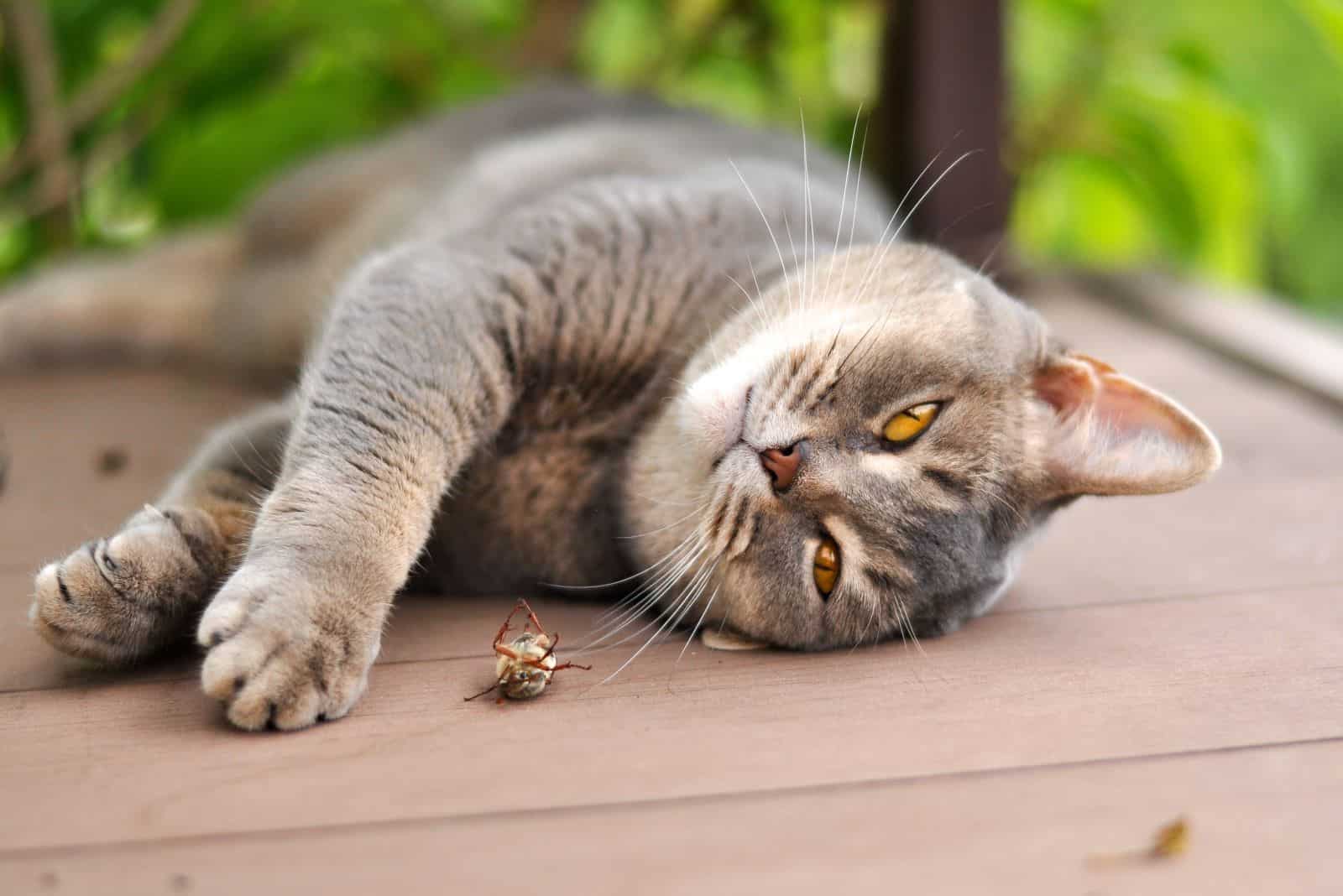
There are other bugs that can be poisonous to your kitty. The list is quite long, but it’s important you know this, especially if your cat enjoys chasing bugs and is a little more adventurous than most cats (meaning they’re no strangers to eating new things!).
Here, I will refer to any creepy-crawly creature you might find in your backyard or wooded areas as a bug. I know that, for example, spiders or bees are not technically bugs, but for the sake of simplicity, let’s refer to all of the mentioned small animals as bugs.
Other bugs than can cause issues to your cat (due to having toxic chemicals within them) are:
Ants
Cats are usually unaffected by ant bites. However, fire ants do pose a health risk to cats they bite.
In addition to being uncomfortable, their venomous bites have the potential to trigger severe allergic reactions, the worst of which can result in anaphylaxis.
If you know your cat has been bitten by a fire ant, I highly suggest you take your pet to the vet. Aside from fire ants, your cat will be fine if they eat a few ants and don’t worry, black ant bites are harmless.
Bed Bugs
Even our furry pets can become victims of these horribly unpleasant parasites. Animals can get bitten by bed bugs just like humans can.
A cat will not get infested with bed bugs (it will not carry them in its fur), but it will experience bed bug bites.
It’s crucial to get in touch with a pest control expert if you suspect your home has bed bugs.
Bees & Wasps
If your kitty is an especially playful one, they might find buzzing, flying insects particularly fascinating. On the other hand, a bee or wasp sting is very unpleasant (as you will know if you’ve ever been stung).
Anaphylaxis from an allergic reaction to a sting can occur in cats, just like it can in humans, although it’s not common.
You should go to the vet if your kitty is having a bad reaction to a sting, such as having trouble breathing or more swelling than you’d expect.
Cockroaches
If your cat eats one of these crawly creatures, there is a possibility your cat will get stomach worms. This is because cockroaches are known to be parasite-carriers, and worms can start developing in your cat’s stomach once they get there.
Your cat will not 100% develop stomach worms if they eat one or two cockroaches, but it is a viable possibility.
If you do notice your cat is sick, has diarrhea, weight loss, lack of energy and other symptoms, it’s best to visit the vet as your cat might be suffering from from anemia and blocked intestines (caused by stomach parasites)
Crickets
There is always a possibility of your cat catching and eating a cricket they find in your backyard. If your cat has a sensitive stomach, eating crickets is not a good idea.
The exoskeleton of crickets can be challenging to break down, which can lead to some issues in your cat’s gastrointestinal tract.
Also, crickets may carry a variety of intestinal parasites that, if consumed by a cat, could spread to the cat (although this is very unlikely to happen).
Monarch Caterpillars
Monarch caterpillars are known to be toxic to animals. Fortunately, they taste quite bitter, so a cat is not likely to try to eat them.
However, if you know your cat has eaten one of these caterpillars, it is essential to see a vet because untreated symptoms may eventually result in death.
Other caterpillar species besides the monarch are actually capable of stinging or injecting poison into curious pets. Overall, it is best to prevent your pets from coming into contact with any kind of caterpillars.
Fleas
Cats are frequently infested with fleas, which can result in itching and even anemia. You might think flea-infestation is limited to outdoor cats only, but you’re wrong – indoor cats can also become infested with these icky creatures.
Your cat can ingest a flea while grooming themselves, which can result in a tapeworm infection. To prevent these problems, flea control solutions should be used monthly.
Grasshoppers
Grasshoppers rarely impair cats’ health and are often non-toxic to them. Your cat won’t develop any health issues if they consume grasshoppers because they are not harmful to cats.
However, consuming a large number of grasshoppers might upset your cat’s stomach and create discomfort, especially when the exoskeleton is being digested.
Ladybugs
It’s unlikely that your cat will have any negative side effects from eating one or two ladybugs.
If your cat eats them in excessive quantities, negative effects may include gastrointestinal problems, as well as oral ulcers.
This is due to their hard exoskeleton. Usually, your cat eating a ladybug or two is nothing to be worried about.
Mosquitos
Mosquito bites are dangerous to cats because it’s known that mosquito bites can cause cats to contract the deadly heartworm illness. Although heartworm infection is not likely to happen in cats, it’s still a possibility.
Heartworms in cats are incurable and can cause your cat to die within a few months if the symptoms are not treated.
Of course, it’s also possible for your pet to get bitten by a mosquito that isn’t carrying a disease. In this case, your cat will just develop some harmless itchiness.
Spiders
Cats are mostly unharmed by the majority of spider bites, especially little house spiders.
Any deadly spider, though, can seriously harm both people and cats. Examples include the Black Widow spider and the Brown Recluse spider.
Although you are not likely to encounter them any time soon, it’s good to know a little bit about them if you live in an area where they might be found.
Stink Bugs
Although stink bugs are not dangerous, their secretions can irritate a cat’s digestive system.
Vomiting and/or excessive drooling could be brought on by this irritation. Irritation of the inside of a pet’s cheeks, tongue, gums, and lips have also been recorded as side effects of irritation by stink bug secretions.
Ticks
Ticks are blood-feeding parasites that can spread disease to your cat and even to you.
Cats that spend time outside are more prone to have ticks, but this is not to say indoor cats can’t catch them because they can, but it’s very unlikely.
Several health issues in cats can result from tick-borne sickness. Consult your veterinarian about the best tick prevention and treatment method if you notice ticks on your cat.
If you reside in a region where cat ticks are common, I suggest you use spot-on tick treatment.
Also Read: Do Cats Eat Lizards? Important Things To Know
How To Prevent Your Cat Coming Into Contact With These Critters?
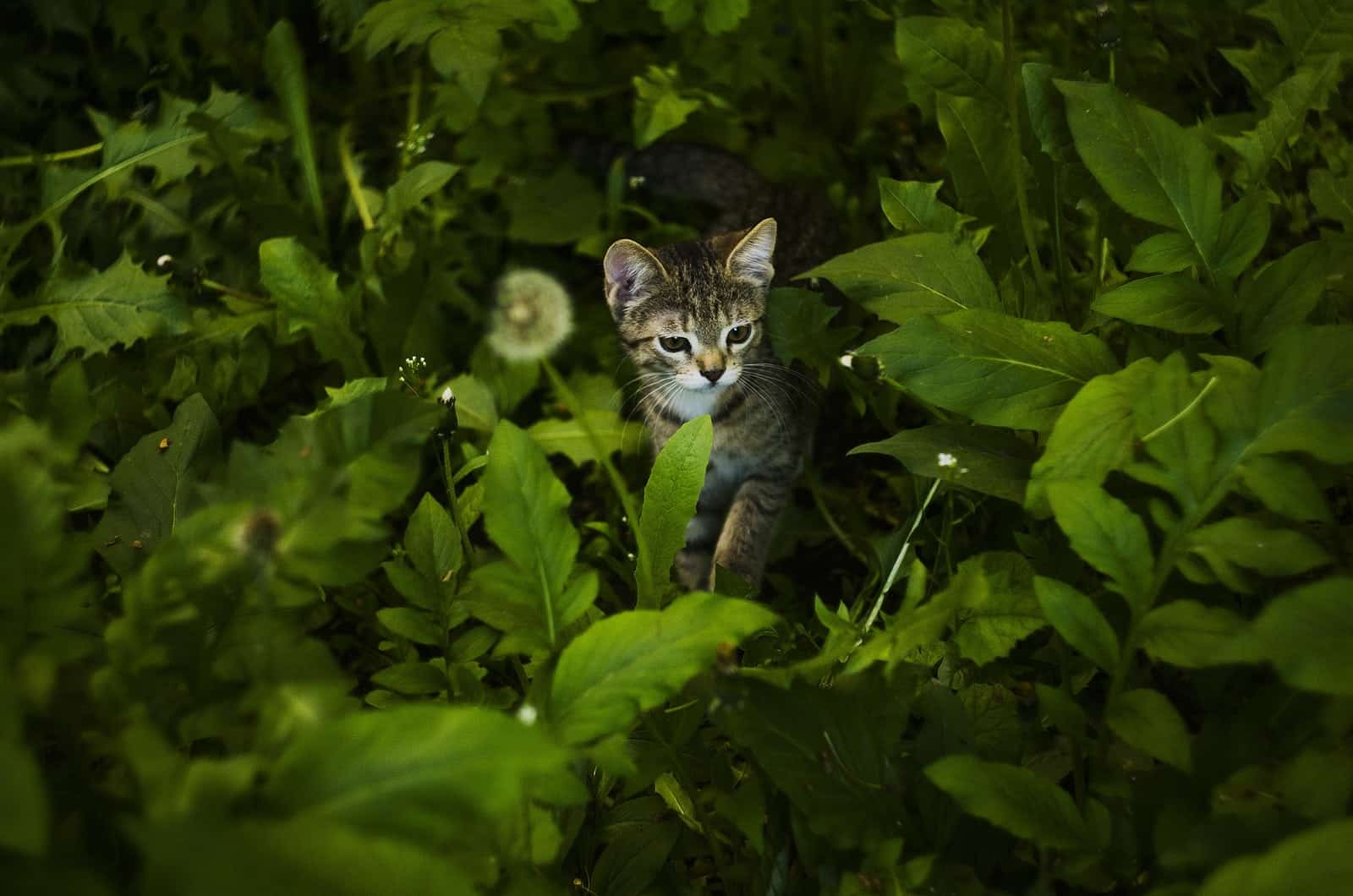
Keeping a cat away from encountering bugs is an impossible task. Your cat is bound to encounter the occasional bug, and that’s normal. It’s not like you can put your cat in a cage and prevent them from experiencing the world.
However, there are some things you can do to lower the chance of your kitty encountering a lot of bugs often.
Here is some of my best advice:
• Keep your backyard and house free of cockroaches.
•Maintain your home’s hygiene as that will help prevent bug infestation (such as bed bug infestation).
• Make sure there are no wasp or bee nests around (on your roof or in the attic for example) and if you find one, call a specialist to get it removed.
• Try to keep your cat indoors during tick season, or carefully inspect them every time they come back in from outside
• Limit your cat’s outside time if you know they’re prone to eating bugs they encounter.
Implementing just one of these tips can be helpful, but I believe the advice about maintaining your home hygiene is the most important one.
Even though I’m sure you do clean your house regularly, it’s still something to be mindful of. A clean house is a house free of ants, cockroaches, bed bugs, fleas, and other small animals that can cause harm to your kitty.
In Conclusion
As you have seen, there are many small creatures out there that can make your kitty sick. It can be a simple bite that causes your cat to have some unpleasant side-effects, or your cat might have eaten the bug and fallen ill.
Either way, it’s surely uncomfortable for your feline friend. One of the mentioned bugs is, of course, the lighting bug (or a firefly as some might call it).
Cats absolutely should not eat lighting bugs as they’re known to be very toxic to lizards, amphibians, birds, and cats. Fireflies secret an anti-predation substance called lucibufagin that makes them taste very bitter and causes stomach and heart issues.
Lighting bugs’ unpalatability is good news because it means your kitty is most likely to spit out the lighting bug and not actually swallow it! If your cat still ends up eating it, there is a chance your kitty will drool, vomit, foam at the mouth or have an upset stomach.
It’s best you protect your cat from encountering lighting bugs, especially if you know your kitty is curious and has a tendency to eat the various things they encounter.
Now you know the answer to Can cats eat lightning bugs?! I hope you found this article interesting and have learned something new!
Related Articles:
Can Cats Eat Salt? Here’s What Every Cat Owner Must Know


